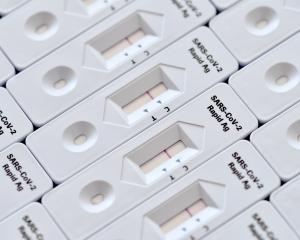
Not surprisingly, the University of Otago study also found being unable to travel within New Zealand and overseas has been the most undesirable feature.
Economics researchers Dr Dennis Wesselbaum and Prof Paul Hansen asked 16 authorities on Covid-19 to rank which lockdown features they found most inconvenient and unpleasant, independent of their effectiveness at controlling the pandemic.
They found the travel-restrictions were almost four times more inconvenient or unpleasant (24.6%) than the requirement to wear masks in public (6.5%).
The cost of vaccination through taxes was seen as the second most undesirable feature (22.1%).
School closures (19.4%) and being made to work from home (17.9%) were also relatively undesirable features, yet being required to stay home (9.6%) was relatively acceptable and seen as not much worse than the requirement to wear masks.
One of the surprising results was that participants were willing to give up four months of normal life in order to avoid experiencing a year with Covid-19, he said.
While the research studied the preferences of public health experts, Dr Wesselbaum said the next step would be to compare those with the preferences of the general public.
"A larger-scale study involving the general population could be conducted in the future, given that Covid-19 and its variants show no sign of disappearing soon."
He said lockdowns were used around the world to slow Covid-19 transmission, and reducing transmission depended on people’s compliance with lockdowns.
The aim of the study was to help policymakers design future lockdowns that were both effective in public health terms and most likely to be complied with — should they be needed.
"Given policymakers have discretion over which features to include and how stringent to make them, greater understanding of how people feel about the various ways a lockdown can be configured will be useful for policymakers striving for designs that foster high compliance," he said.
Advertisement













